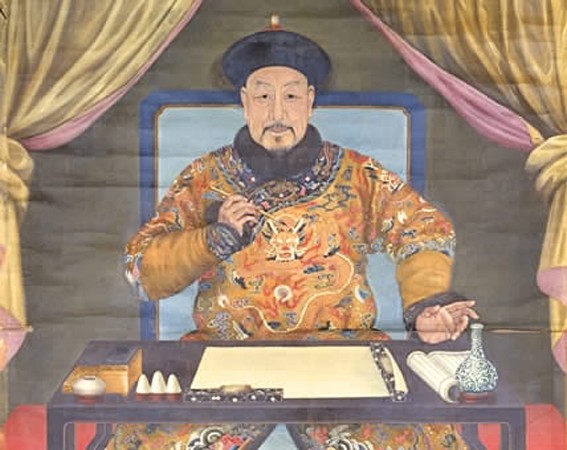A collection of scrolls containing four parts of the five-part calligraphy work Notes on White Pagoda Mountain was auctioned at the record price of 101 million yuan ($16.4 million) Tuesday night at the Poly International Auction in Beijing, the Global Times reported.
Notes on White Pagoda Mountain was done by Emperor Qianlong (1700-1799) of the Qing Dynasty (1644-1911). A master calligrapher, the emperor collected famous works, read them, inscribed comments and marked them with his official seal.
As described by CITS, Qianlong's calligraphy or "handwriting was stretched out, bold, but formulated in accordance with regulations. His characters were fluid in their strokes, and balanced in construction. Their boldness and vigor came from the emperor's personal characteristics, but were also related to the time he lived in."
The emperor wrote his Notes of White Pagoda Mountain in 1773 following a visit to the White Pagoda, a small hill on an isle in what is now known as Beihai Park, near the Forbidden City. It is highly valued largely for its historic significance as some of the architecture and scenery described in Qianlong's calligraphy are now no longer around.
Notes on White Pagoda Mountain is originally comprised of five passages. Each passage was originally written by the emperor on five separate scrolls. Following the end of the Qing dynasty, the scrolls, along with possibly other precious artifacts of the period, got scattered, lost or destroyed. Many that survived, as in the case of five of the 25 Notes on White Pagoda Mountain scrolls, were eventually found to have landed in the hands of art collectors.
Four of the remaining five notes were finally retrieved, but only after more than two decades of searching by the unnamed seller, according to Zhao Xu, executive director of the Poly Auction, in explaining the record price that the historical work fetched at the bidding block.



























